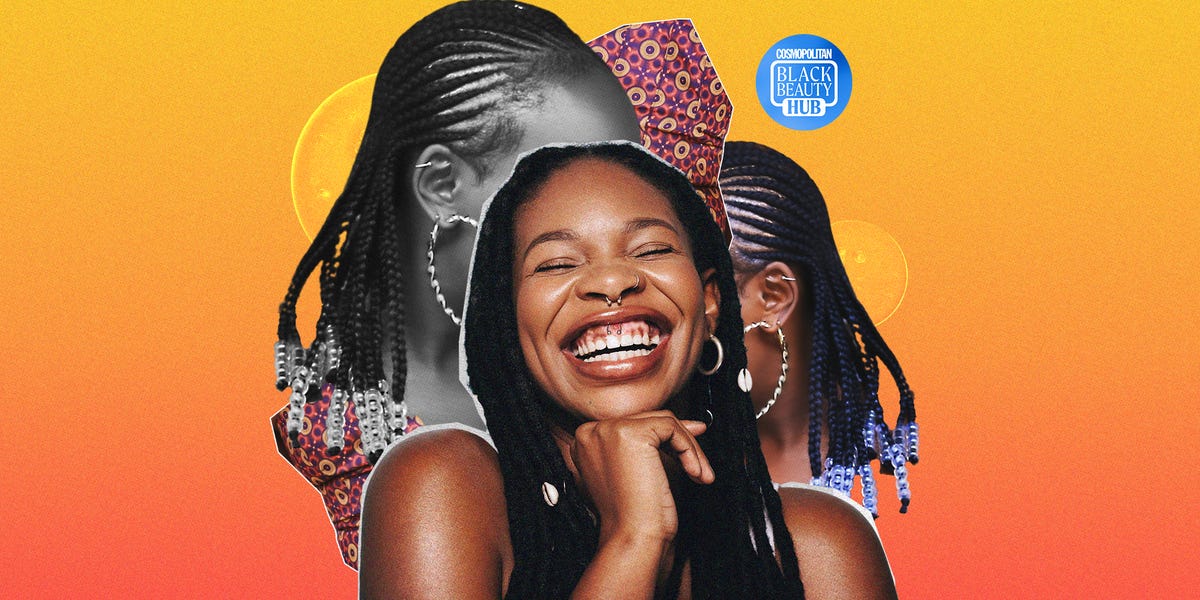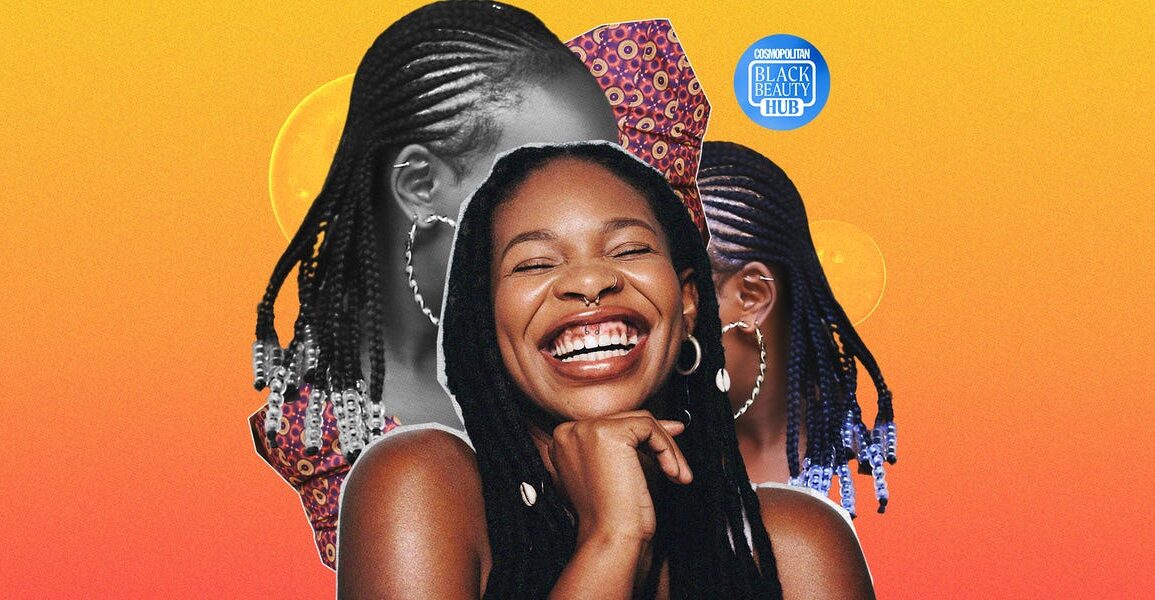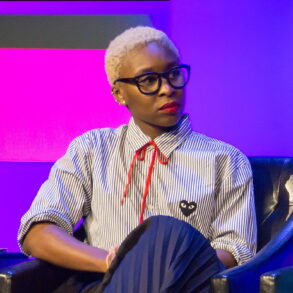
Detty December [the nickname for celebrations from December to early January in West Africa], is the highlight of the year-end in Nigeria. As the stream of Detty December dos and don’ts start to flow online, Nigerians abroad begin to pack their bags to be a part of the country’s festivities. The cities begin the buzz with familiarity of its inhabitants and the eagerness of their ‘IJGBs’ [I Just Got Backs] visitors as they all flock to the shows, concerts, carnivals and house parties lined up for that period. But, alongside the festivities, hair is also a large part of Detty December conversations in Nigeria. Having elaborate hairdos for festivities is a big part of the Nigerian culture and one that emphasises the importance of looking good. In addition to reconnecting and having fun with family, the journey home becomes a pilgrimage for Nigerian women from the UK who get to have their hair pampered.
The luxury of Lagos
Against her parents’ will, Helena Ibitayo, an aviation security officer who grew up in London, has made it a tradition to visit the country twice a year—once in the course of the year and unfailingly for Detty December.
“I look forward to Lagos,” she says. “It’s so fun, especially as I’ve grown tired of going out in London.” Behind Ibitayo’s love for the attractions of Nigeria’s largest city is the care her hair enjoys from Nigerian hairstylists. In the UK, especially outside of the big cities, Black women often struggle with finding satisfactory haircare. This means that for Nigerian women, after grappling with these challenges for the most part of the year, travelling to Nigeria for Detty December is a time to enjoy the services of skilled hairdressers while also exploring native and trendy hairstyles.
Ibitayo explains that she registered how expensive hair maintenance is in the U.K. when she grew older and began to pay for her hair by herself. “I realised it can get so expensive as soon as you want to branch away from a simple style. It’s also expensive to pay for hair treatments and things that could essentially keep your hair healthy. Luckily, I have been using the same hairdresser for years so she doesn’t charge me too much but I usually stick to the same hairstyle because of this.”
While Toks Aruoture, an interior designer, would typically have a hairdresser come to her home due to her busy life as a businesswoman with a large family, she admits that it comes with inconveniences. “My hairdresser is also a nursing student, which makes her availability unpredictable, often leading to last-minute cancellations or the need to plan weeks in advance for events. Usually, I’m required to feed the hair to the hairdresser in bits, which means I can’t do anything else, essentially leaving me idle for hours. Having only one person working on my hair makes it a long, drawn-out process,” she reveals.
Things, however, pan out differently for these women when they’re in Nigeria for the holidays. They get to be treated as the rule and not an exception or minority, experiencing what it means for a hairstylist to have a natural familiarity with their hair types. Hair salons are littered around and readily open to walk-in services. The hair salon arrangement in Nigeria, which often sees multiple staff hairstylists or apprentices working together on one head, also makes appointments quicker.
“In Nigeria, the experience is miles apart [from the U.K.]. Skilled [Afro] hairdressers are around almost every corner. When I’m in Lagos or Abuja, I visit my trusted salon. If I’m getting braids, there’s often a team of three or four people working on my hair simultaneously, which makes the entire process swift and efficient. The attention to detail is also impressive, with a supervisor frequently checking to ensure the work is up to standard. I leave feeling not only well-groomed but also pampered, which is hard to come by in the U.K. hair care scene.”
The rule, not the exception
Affirming the ease of accessing hair services at very affordable prices, Ibitayo says: “In Nigeria, I have a regular hair dresser that I visit every time in town. Each time, it’s so apparent how different it is from the services available in England. I get hair treatments, the hair extensions and attachment service all included and it will be a fraction of what I spend in the UK. The last service I got cost me £32.” While getting braids in the UK could start from £140 – £160 depending on the type or length, one could get braids at the rate of ₦70k at a high-end salon in Lagos [roughly £34]. For Ibitayo whose hairdresser in London charges £100+ for braided styles, in Lagos, she often spends an equivalent of £18.
Dr Adaku Agwunobi, a singer and Postdoctoral fellow at Oxford University, recollects trusting some hairstylists to give her a befitting hairstyle last December in Lagos, even though she hadn’t booked an appointment beforehand.
“I remember for my December concert in Lagos, I opted to do my hair in the morning but by the time I arrived (due to traffic), the hairstylist at that salon had left. Luckily there are always several salons around. We chose one near the venue of my show. I didn’t actually know what style I wanted so I gave them free reign and it worked out amazingly. Though time was tight, having multiple hairstylists being able to attend to my hair meant that I finished really quickly.”
“The Nigerian hair care scene during Detty December is truly part of the season’s magic,” says Aruoture. “It’s not just about getting your hair done but being immersed in the culture and vibrancy of home. Hair salons in Nigeria are buzzing with activity, filled with the excitement of people prepping for events, gatherings, and reunions. Everyone has freshly done hair.”
Ibitayo, on the other hand, finds these visits as avenues to push boundaries on her hairstyles. “For my hair, it means I get those all important hair treatments and more elaborate styles that I would shy away from in England in fear that the stylist is not able to do it. I have a lot more confidence in the skill of braiders in Lagos.”
It is also the same for Agwunobi. “There are times where I do the same few styles on repeat but going home really makes me explore. I did goddess braids in February in Lagos for example. Prior to this, I hadn’t had braids for a long long time.”
These women also want their hairstyles to last beyond the time they spend in Nigeria, so they often get braids right before returning to the UK. “I do that every single time. I get my hair done two days before I leave Nigeria,” says Aruoture and Ibitayo agrees, saying; “I always always get my hair done in Nigeria just before I come back to England. I always see people with fresh hairstyles in the airport as well, so it’s definitely common for women to do their hair before departing Nigeria.”
While more U.K stylists should acquire training in making Afro-textured hair, Black stylists in the Diaspora can also replicate the hair styling culture in their home countries. Agwunobi’s most recent experience in the U.K. proved promising. “I recently went to a hair salon in Stratford owned by a British-Nigerian. At one point, three people were doing my hair at once as I mentioned that it is a huge part of Nigerian hair salons,” she recounts. For Aruoture, she wants to see Black UK salons where, like Nigeria, appointments are stuck to so that customers are not disappointed. It’s clear that the salon experience in Nigeria gives homegoers the opportunity to experience hair care tailored to their Afro-textured hair so here’s to hoping that the U.K. can deliver even more going forward.
This post was originally published on this site be sure to check out more of their content.









